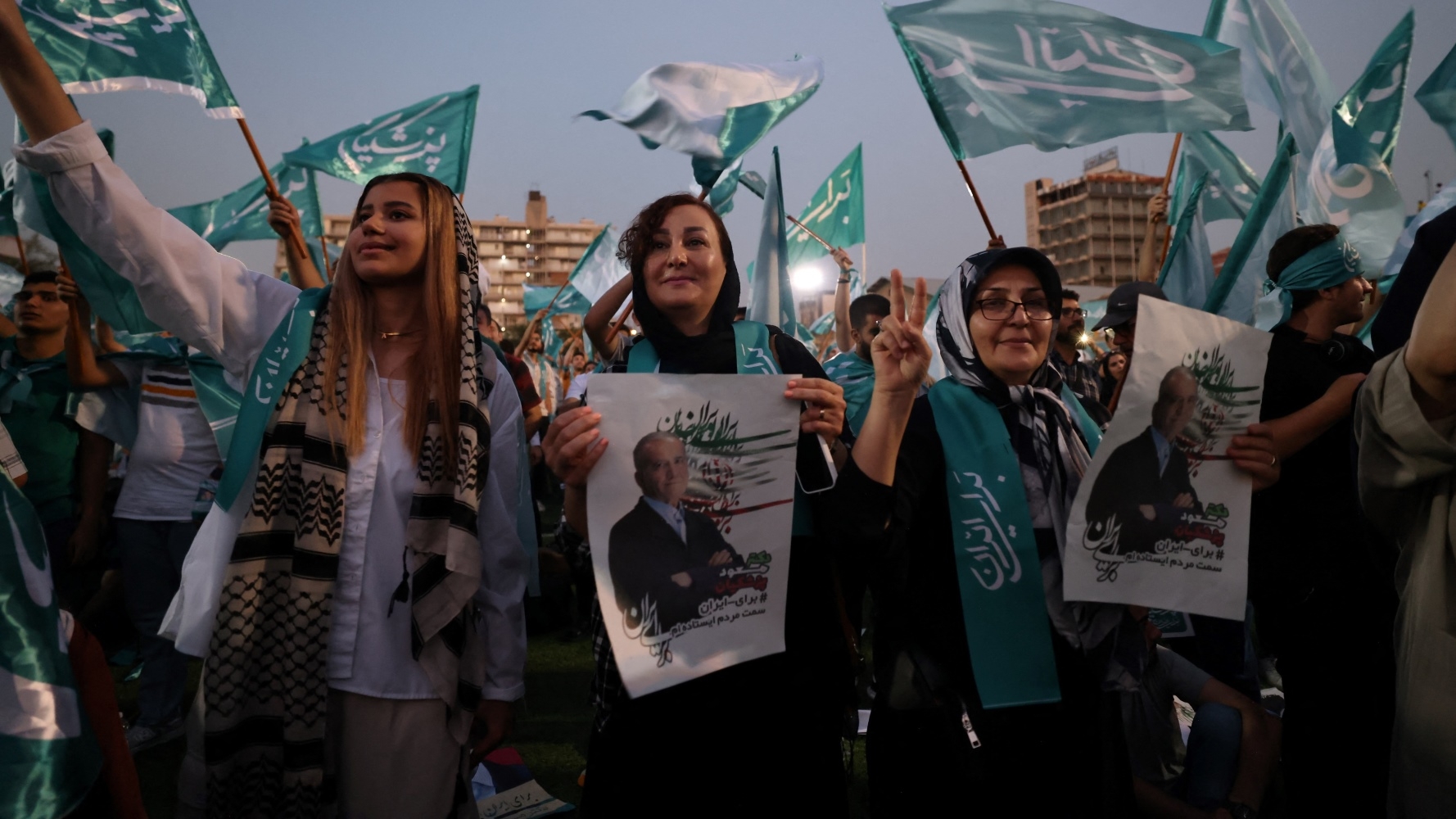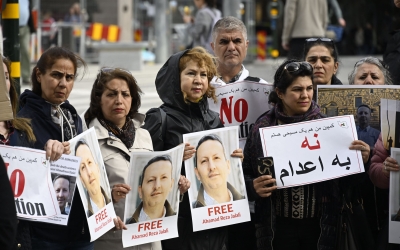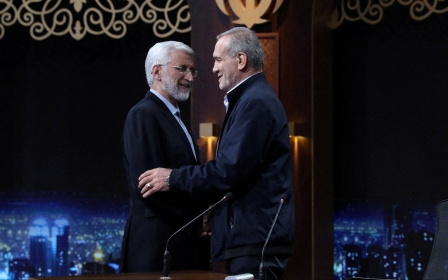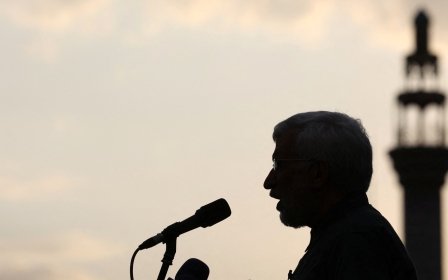Iranian press review: ‘People do not accept us', says presidential candidate Pezeshkian

Record-low election turnout signals legitimacy crisis
A record-low turnout in Iran's most recent presidential election is a sign that "people do not accept" the ruling elite in Iran, according to presidential candiate Masoud Pezeshkian.
The reformist-leaning candidate was referring to the most recent first-round election, in which turnout was just shy of 40 percent.
Pezeshkian, with over 10 million votes, and hardline former nuclear negotiator Saeed Jalili, with more than 9.1 million votes, advanced to a run-off on 5 July.
Despite the establishment downplaying the low turnout, several local analysts have warned that Iran’s theocracy faces a severe crisis of legitimacy and high levels of dissatisfaction among the electorate.
New MEE newsletter: Jerusalem Dispatch
Sign up to get the latest insights and analysis on Israel-Palestine, alongside Turkey Unpacked and other MEE newsletters
Writing on X, former labour minister Ali Rabiei said: “The decline in voter turnout indicates that the lower classes are affected by poverty policies, the middle class by a lack of opportunities, and the general public, particularly the younger generation, are frustrated with restrictive social and cultural policies.”
In an article in the Ham-Mihan daily titled “The Message of the 60 Percent", sociologist Amir Mahmoud Harirchi said: “As time passes, opportunities to build social capital are increasingly limited, leading people to feel that their rights are being ignored. Widespread corruption is rampant in the country, and it seems no one is addressing it any more.”
Iranian-Swedish scholar’s life 'at risk'
Iranian activists have called on the Swedish government to intervene in the case of Ahmadreza Jalali, an Iranian-Swedish scholar on death row in Iran's Evin Prison.
Jalali, who is on a hunger strike, faces imminent execution. On Tuesday, a group of activists gathered in front of the Ministry for Foreign Affairs in Stockholm, condemning officials for not taking action to free him.
In a video that went viral on Persian social media and was broadcast by Persian-language outlets outside of Iran, one of the protesters referred to a prisoner swap in June, saying: “No attempt was made to free Ahmadreza Jalali, who is under the death penalty.”
On 15 June, former Iranian assistant prosecutor Hamid Nouri was released from prison in Sweden in exchange for the freedom of two Swedish citizens, Johan Floderus and Saeed Azizi, who had been held in an Iranian prison.
Jalali’s wife, Vida Mehrannia, urged the Swedish government to “act and bring Ahmadreza home”, citing his deteriorating health due to the hunger strike.
“As July begins, today is the 6th day of Ahmadreza’s hunger strike. His life is at serious risk, with his pulse and blood pressure at life-threateningly low levels… How much longer does he need to suffer?” Mehrannia wrote on X.
Jalali began the hunger strike on 26 June in response to the prisoner swap, in which he was not included. In a voice message from inside Evin Prison, he accused the Swedish prime minister of putting his life in danger.
"Mr Prime Minister, you decided to leave me behind, under huge risk of being executed in Evin. You did not act to alter my condition and cancel the death sentence," he said in the voice message.
Four prisoners dead in Shiban Prison
Four prisoners have died in Ward 3 of Shiban Prison under unknown circumstances, the Karun Human Rights Organization announced, adding that 15 other prisoners have been transferred to a hospital outside the prison.
Prison authorities have not issued information about the incident or updates about the health of inmates in the hospital.
'The medical cart in the prison was dubbed "the carriage of delight"!'
– Vida Rabbani, political prisoner
Shiban Prison, located near Ahvaz in the southwest of the country, is designed to house 3,500 inmates but currently holds more than 5,000. Ward 3 specifically detains those accused of theft and drug possession.
The Karun Human Rights Organization reported that the prisoners may have been given the wrong medication, leading to poisoning. However, this has not been confirmed.
Previously, political prisoners have reported the widespread use of sedatives in Iranian prisons.
Vida Rabbani, a political prisoner, highlighted the issue in a letter from inside the facility last year. She said that painkillers and sedatives were handed out without limitations.
"At first, I couldn't believe that no matter how much you asked for, they would give it to you. The medical cart in the prison was dubbed ‘the carriage of delight’!" she wrote.
Human rights organisations also reported that prisoners in the central prison of Karaj experienced an eight-day water cut.
This situation has raised concerns about the spread of seasonal diseases due to the heat. Karaj prison, with a capacity of 2,500, currently houses over 8,000 inmates.
Middle East Eye delivers independent and unrivalled coverage and analysis of the Middle East, North Africa and beyond. To learn more about republishing this content and the associated fees, please fill out this form. More about MEE can be found here.





